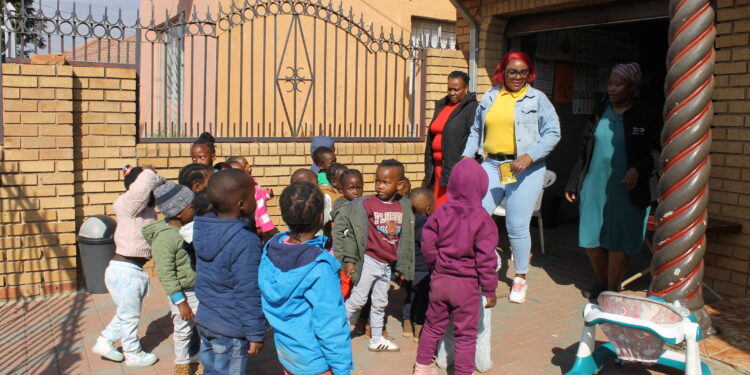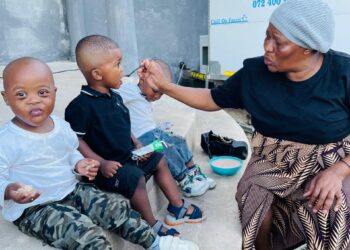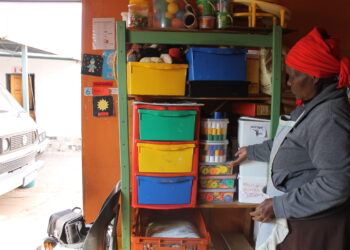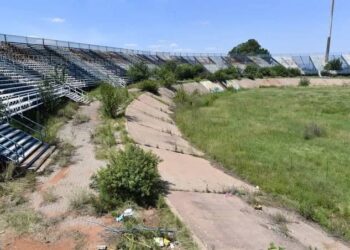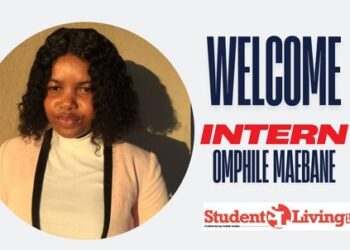At Mshengu Learning Centre in Nellmapius, Ubuntu isn’t just a philosophy, it’s how they care for every child, especially those with special needs
By Zanele Makola
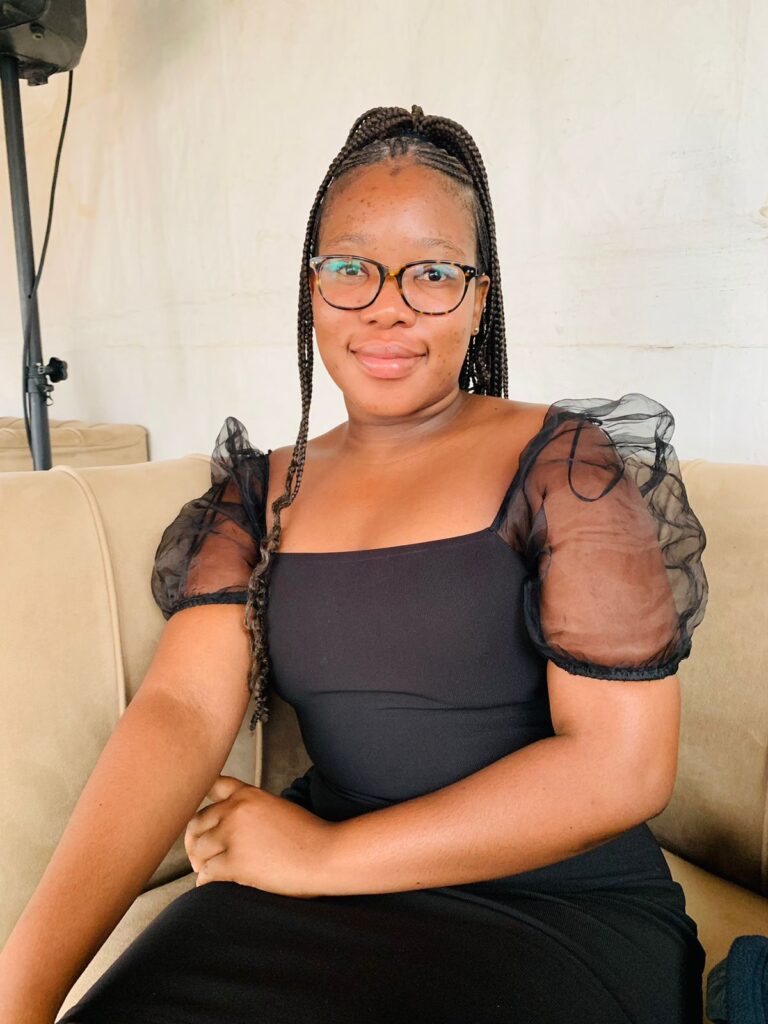
The smell of soft porridge fills the air as children tumble out of taxis and into the arms of teachers at Mshengu Learning Centre. It’s 6:30 AM in Nellmapius, a township in South Africa’s capital city Pretoria, and another day of Ubuntu child care is beginning.
Ubuntu, the deeply rooted African philosophy that “we are all connected,” isn’t just painted on the walls here. It lives in every interaction, every adaptation made for children who learn differently, every parent supported through challenges they can’t face alone.
In this bustling township of 56,000 people, originally developed as an extension of nearby Mamelodi in the 1980s, community care means something deeper than anywhere else. Here, where 95% of residents are Black African and Sepedi echoes through the streets, the ancient wisdom of collective responsibility meets modern child development needs.
For Nyeleti Shipalana, watching over 20 little ones isn’t just a job, it’s Ubuntu in action. “I don’t have a child with special needs myself, but it brings me peace knowing parents don’t have to face this alone,” says the bubbly 38-year-old teacher. “We’re here to help raise their children.”
That philosophy gets tested daily. One 4-year-old boy, likely on the autism spectrum, won’t eat unless someone feeds him. He struggles with textures and prefers to play alone. Another child arrived last year with hearing loss, needing extra help to communicate with classmates.
Most centres might find excuses. Mshengu finds solutions.
When the system fails families
“It’s often difficult to feed him because he’s very picky, and it would be easier to make the same food for everyone,” admits Shipalana’s co-worker, asked to remain anonymous. “But we’ve found ways to help him eat.”
This kind of individualized care is rare in South Africa’s fragmented early childhood landscape. Across the country, 60% of early learning centres operate unregistered, often not by choice but due to complex compliance requirements. Of those that are registered, only 40% are fully compliant.
Many children in areas like Nellmapius struggle to hit early learning milestones. Across Pretoria, centres often lack basic ramps, accessible toilets, and trained staff, leaving children with special needs behind. Most early learning workers in South Africa either have no formal training or learned from organizations that aren’t officially recognized.
Thabo Mthembu drops his 3-year-old daughter off each morning before heading to his construction job. “I can go to work knowing she’s in good hands,” he says. “They don’t just watch her, they really care about who she becomes.”
But finding quality, affordable child care in townships like Nellmapius often feels impossible. Many working parents earn too much for government subsidies but not enough for private centres, a frustrating middle ground that leaves children without options.
Community leaders step up
In Nellmapius, as in many South African townships, community leaders aren’t elected officials—they’re volunteers who emerge organically to keep neighborhoods functioning. These unpaid champions coordinate everything from street cleaning to conflict resolution, and increasingly, they’re advocating for better child care.
“The paperwork alone stops many people from opening centres,” explains Sarah Ndlovu, a respected community leader who has lived in Nellmapius for over two decades. “But we need more places like Mshengu.”
Ndlovu spends her days helping residents navigate government services, mediating disputes, and organizing community meetings. Like many township leaders, she stepped into the role because someone had to and the formal government presence in places like Nellmapius often feels distant.
Getting registered as a child care centre means jumping through hoops with multiple government departments. Owners must get approval from The Department of Social Development of South Africa, a government department, obtain health certificates from the City of Tshwane Metropolitan Municipality, and coordinate with the national Government Education and Health departments. For families seeking help with child care costs, the process starts at Social Development offices where they prove their income and join waiting lists.
The law says every child deserves the best care possible and centres like Mshengu are making that real. South Africa’s Children’s Act covers everything from basic safety to nutrition standards, creating a safety net for the country’s most vulnerable children.
Finding solutions in tradition
That caring extends beyond the classroom walls. Children learn through jumping, singing, and playing Kgati, a traditional South African game that connects them to their roots. After lunch, sleeping mats cover the floor where tired little bodies rest before parents return.
Shipalana didn’t start with special training either. But she sought it out, completing programs on caring for children with disabilities and learning how to spot developmental challenges. “Every child deserves a chance to learn and grow,” she says simply.
The government has been trying to help. In 2022, South Africa took a major step by transferring all early childhood development responsibilities to the Department of Basic Education, a move designed to create better coordination and stronger support for young children. The department now focuses on expanding access to quality programs, especially in underserved communities like Nellmapius, while strengthening practitioner training and developing better infrastructure standards.
They’ve increased funding for Grade R classes, improved training requirements for teachers, and set better nutrition standards for facilities getting government support. But it’s not enough.
“We see what this centre is doing, it’s changed our street,” says neighbor Rebecca Molefe, watching children play outside. “Kids are happier, parents stress less. If more places worked like this, imagine what could happen.”
Shipalana dreams of that too. She’s seen how Ubuntu and the philosophy of ‘it takes a village’ transforms not just individual families but whole communities. When children with different needs play together, when parents support each other, when teachers go the extra mile, that’s when real change happens.
“If centres got training like we did, kids across Gauteng could benefit,” she believes. “It’s not about having the fanciest building or the most toys. It’s about seeing every child as our child.”
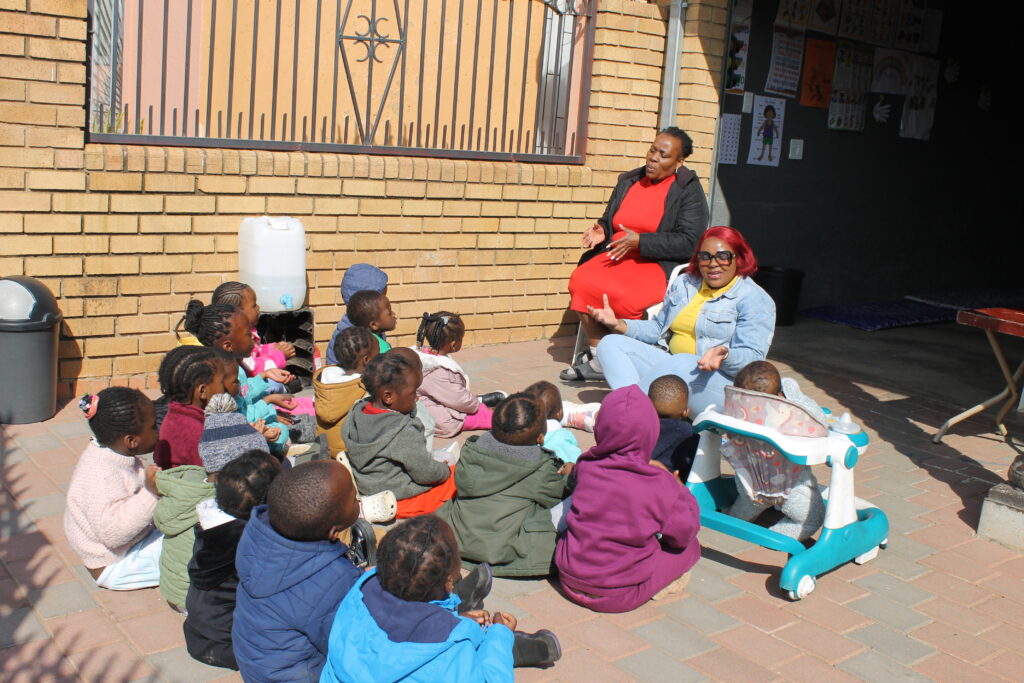
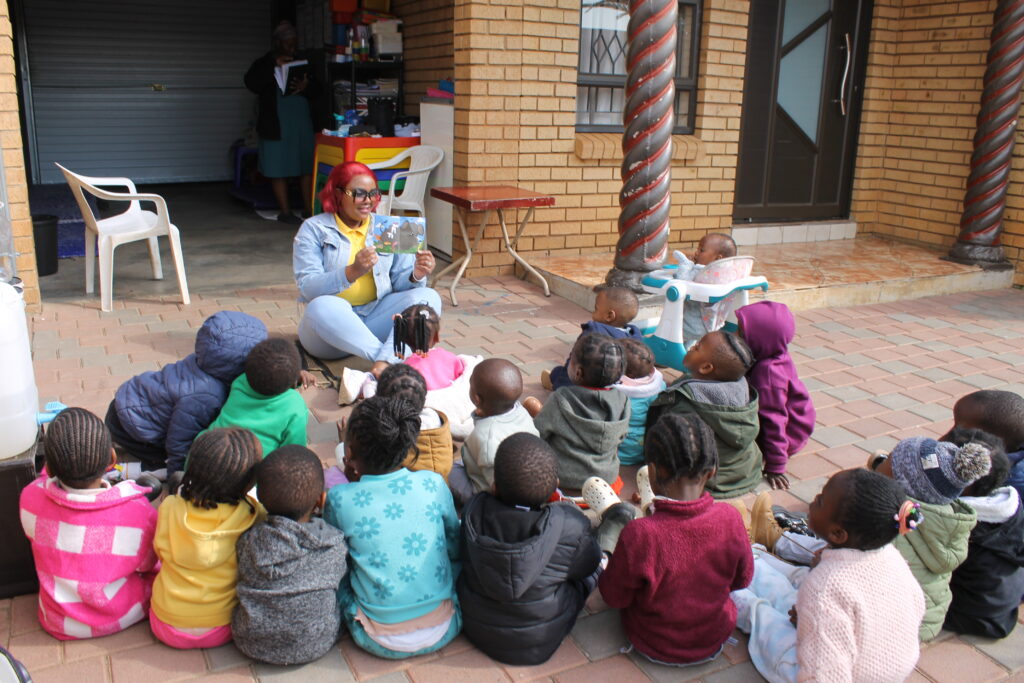
What makes the difference
The boy who wouldn’t eat now sometimes feeds himself. The girl with hearing loss has learned to communicate through gestures her classmates understand. Small victories that ripple outward.
As the afternoon sun filters through windows decorated with children’s drawings, another day winds down at Mshengu. Parents arrive to collect sleepy toddlers and chattering preschoolers who’ve spent hours learning that differences aren’t obstacles, they’re just different ways of being human.
“This is what community looks like,” says parent Nomsa Khumalo, scooping up her son. “We’re all in this together.”
In a country still healing from division, places like Mshengu quietly prove that caring for each other’s children isn’t just noble, it’s necessary. Every child who learns to read here, every parent who goes to work without worry, every teacher who refuses to give up on a struggling student is building something bigger than themselves.
They’re building the village that raises the child. And in Nellmapius, that village is working.
Mshengu Learning Centre operates from 6:30 AM to 5:00 PM, Monday through Friday, serving children ages 0-5 in Nellmapius, Pretoria. The centre welcomes all children and provides specialized support for those with special needs.


